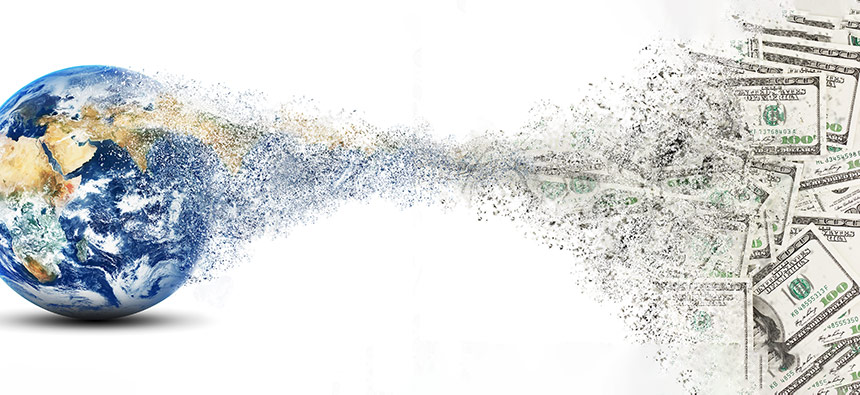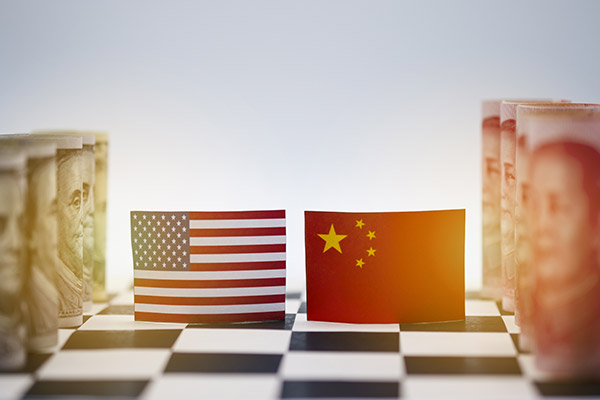
Things Just Got Much Worse for the Global Dollar

Mark this moment as one when the fate of the global currency reserve dollar took a turn for the worse. The Washington foreign policy establishment just drove its most important adversaries into a marriage of convenience with one another, binding them together in a defensive union against US global hegemony and hastening the end of the dollar’s special privilege.
No more slow-walking. The dollar will now begin racing to its fate.
Although they have been divided by a 2,600-mile border that has come close to erupting into open warfare in the past, today Russia and China have mutually agreed-upon boundaries and the countries are key trading partners. (Vladivostok, the Russian port city on the Pacific may long be in contention; it is closer to Japan than to Moscow. But for now, it is a back-seat issue.)
Russia has always been on the frontline of the battle against Islamic terror and expansionism, a role that might have been exploited more wisely by the West over the last generation. The irony is that it is the US foreign policy establishment that has sought to drive a wedge between Russia and the West, driving Russia into China’s arms, foolishly creating a new power-bloc. China and Russia’s mutual cooperation is all the more notable today as US diplomatic influence around the world wanes.

Now hard on the heels of the failed US-China summit in Anchorage, the foreign ministers of China and Russia, Wang Yi and Sergey Lavrov met. No matter one’s viewpoint on foreign affairs, Lavrov must be regarded as one of the most skillful diplomats of our time: well-informed and insightful, measured and unflappable, candid and well-spoken.
Accordingly, it is important to take note of Lavrov’s remarks in which he clearly called for moving away from the dollar in international trade now:
“The United States has declared limiting the advance of technology in Russia and China as its goal. So, we must reduce our exposure to sanctions by strengthening our technological independence and switching to settlements in national and international currencies other than the dollar. We need to move away from using Western-controlled international payment systems.” (Emphasis added).
We are not positioned to make foreign policy. Our job is to help our friends and clients protect themselves and profit from events beyond our control. But it appears to us that what we are witnessing on the international stage is something out of Sun Tzu’s The Art of War: attack your enemy when he is weak. Because of the weakness implicit in the metastasizing of US debt and the ballooning of trillions of unbacked Fed dollars, this explicit challenge to the dollar’s global reserve comes at a time of maximum impact.
We have written about de-dollarization many times. In December, we noted a Financial Times piece on the history of world currency reserves. It wrote:
“Before the U.S., only five powers had enjoyed the coveted “reserve currency” status, going back to the mid-1400s: Portugal, then Spain, the Netherlands, France and Britain. Those reigns lasted 94 years on average.”
Now the dollar has had about a 100-year run as the go-to currency. That is about as long as any reserve currency seems to last.
But while national currencies come and go, gold endures.
We invite you to speak with a Republic Monetary Exchange gold and silver specialist to find out why owning precious metals is your first line of defense against global de-dollarization.
